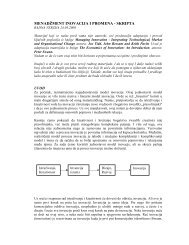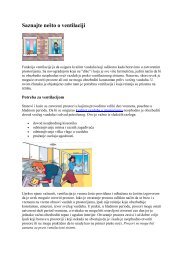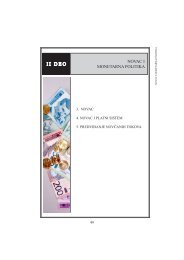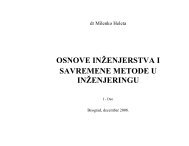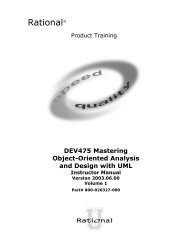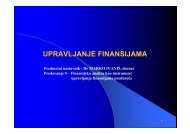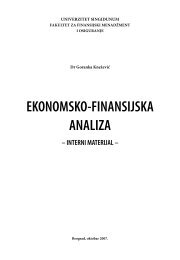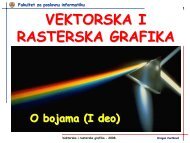A SUSTAINABLE FUTURE IN OUR HANDS - To Parent Directory
A SUSTAINABLE FUTURE IN OUR HANDS - To Parent Directory
A SUSTAINABLE FUTURE IN OUR HANDS - To Parent Directory
- No tags were found...
Create successful ePaper yourself
Turn your PDF publications into a flip-book with our unique Google optimized e-Paper software.
© CorbisNatural resourcesdioxin in milk, artificial hormones in meat and other food-relatedhealth scares.The seas have suffered from pollution and over-fishing; now climatechange is having an impact. But the EU’s Marine EnvironmentStrategy aims to achieve good biological status for European watersby 2021. EU countries will have to present a detailed assessmenton the state of their seas, define what good environmental statusmeans to them in their regional seas, establish targets and set outmonitoring programmes. There will also be close cooperation withnon-EU countries who share the same waters. From 2008 it is thestated aim of the EU to make sure that their policies on maritimeaffairs will work together, across the board.Within the Water Framework Directive every river basin will beanalysed for its water quality, with specific focus on areas vulnerableto pollution. Quantity will be measured against demand forirrigation, energy generation, drinking water consumption andindustrial and ecological uses.In 2006, the EU ensured the protection of 38% of its forests andwoods. The Forest Action Plan runs from 2007 to 2011 and hasfour main objectives: to boost long-term competitiveness; improveand protect the environment; contribute to quality of life, andfoster coordination and communication.Looking after our natural resources doesn’t only mean protectingthem from exploitation, it also requires us to re-use and recyclewhat we can. What we can’t use again has to be disposed of in away that has the least impact on the environment.<strong>To</strong> work towards this goal, the Thematic Strategy on WastePrevention and Recycling was adopted in December 2005. It is along-term strategy aimed at helping Europe become a recyclingsociety that seeks to avoid waste and uses waste as a resource.The Integrated Pollution Prevention and Control (IPPC) Directiveis a cornerstone of EU legislation dealing with industrial installationsthat are potential high polluters. Such installations may onlybe used if the operator holds a permit containing requirementsfor the protection of air, water and soil. Waste has to be cut rightdown, the potential for accidents foreseen and prevented and, ifnecessary, the site cleaned up. These requirements must be basedon the principle of best available techniques (BAT).041



